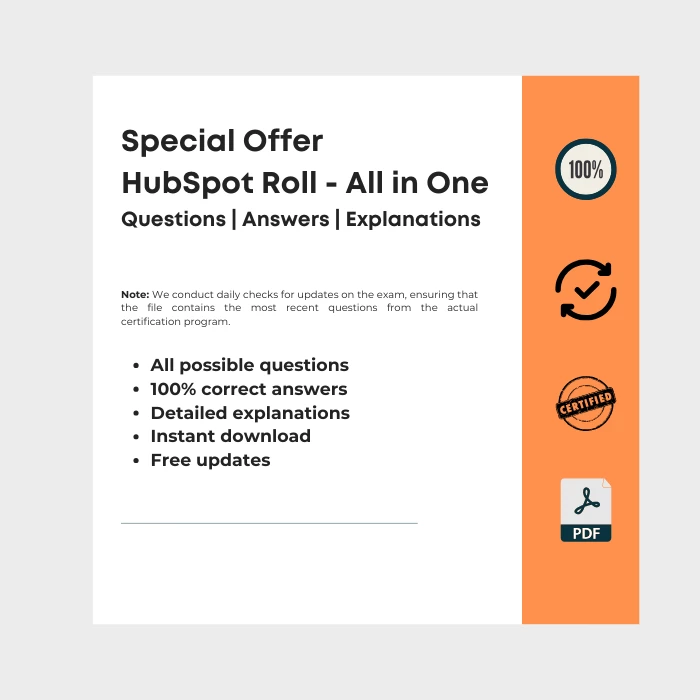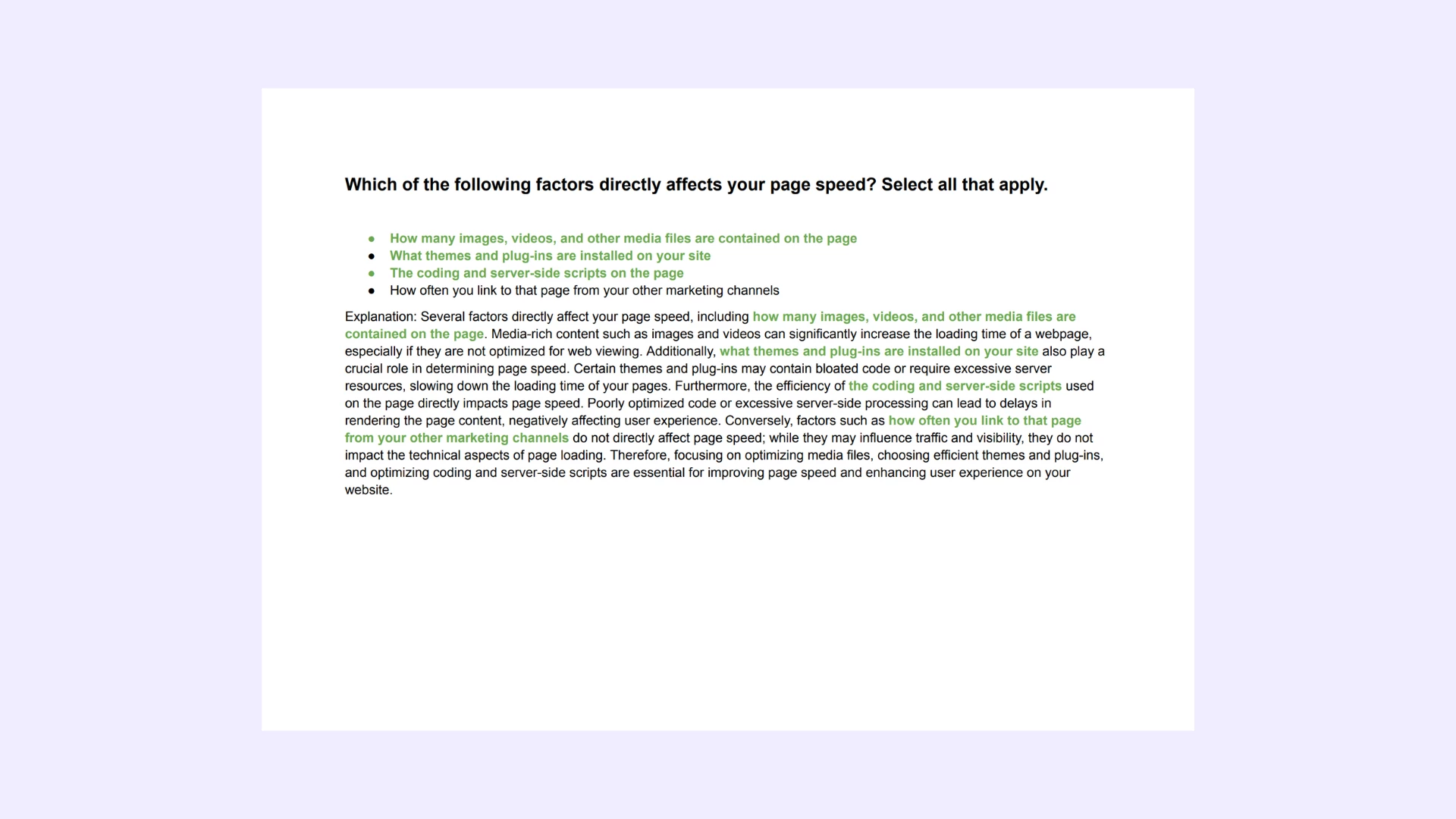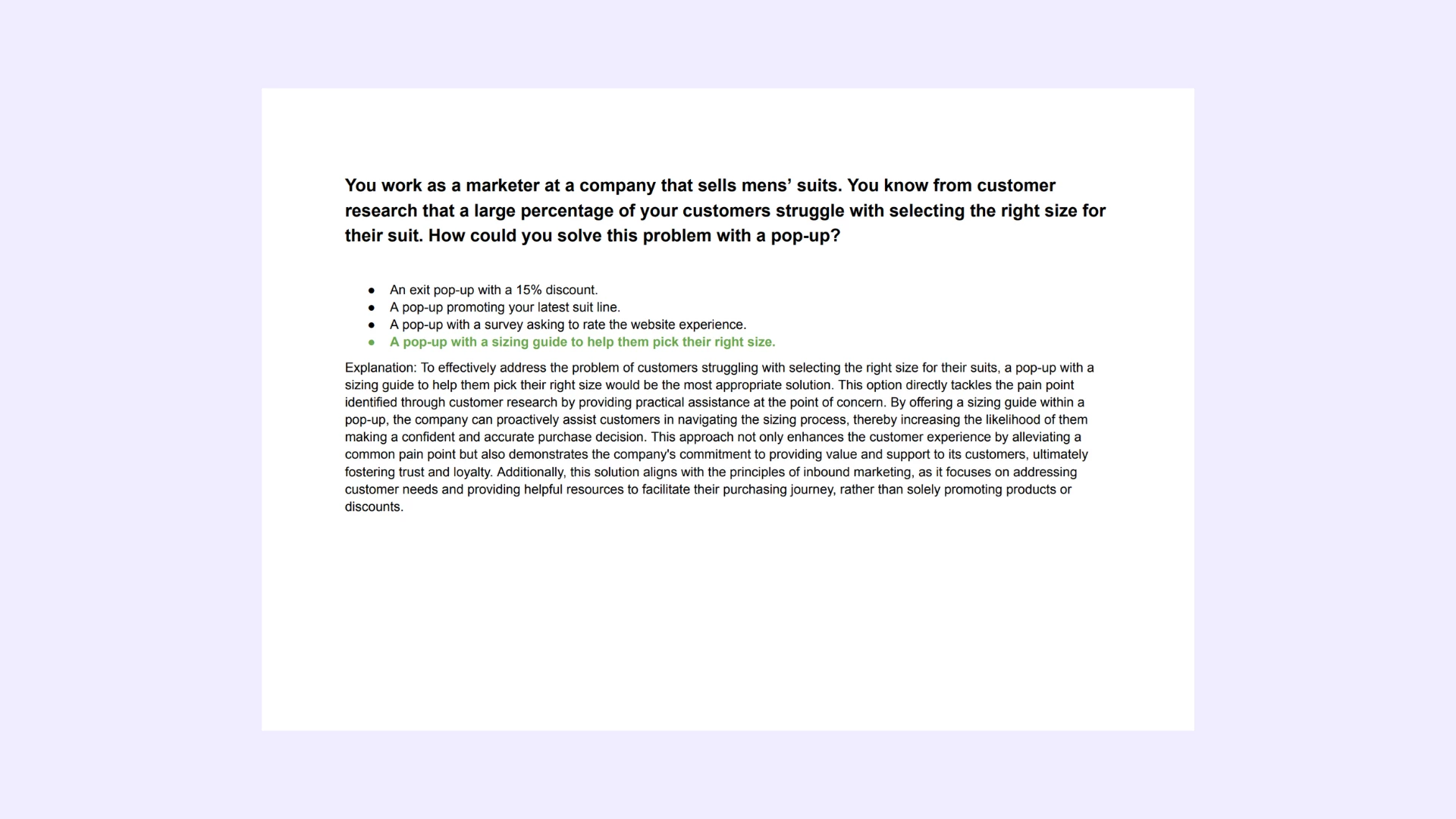How can you set up the idProperty to use a unique parameter, such as an email address, other than the contact record’s ID number?
Use “idProperty=email”
Use “idProperty=email@email.com”
Use “idProperty=firstNameLastName”
Use “idProperty=property”

HubSpot Roll. Includes Answers for Every Real HubSpot Certification Exam.
All-in-One: Get all HubSpot exams answers with explanations in one bundle. This package includes answers for every current HubSpot certification. Regular updates to reflect the latest exam version. -> See what's included.


Need a single cerification exam answers? Check out our -> list of certification exams answer keys. Learn Smarter. Obtain or Renew your certificates with peace of mind!
Explanation: How can you set up the idProperty to use a unique parameter, such as an email address, other than the contact record’s ID number?
Explanation: The selected answer, " correct: trueUse 'idProperty=email'," is correct because it accurately describes how to configure the idProperty to utilize a unique parameter, such as an email address, instead of the default contact record's ID number. The idProperty parameter is commonly used in API requests to specify which property within a dataset should be treated as the unique identifier for each record. By setting idProperty=email, you instruct the API to use the email address property as the unique identifier for contact records, allowing you to retrieve, update, or manage contacts based on their email addresses rather than their internal ID numbers. This configuration is particularly useful when dealing with contact data where email addresses serve as the primary or preferred identifier for individuals. The other options provided, such as using a specific email address (email@email.com), a combination of first and last names (firstNameLastName), or a generic property (property), do not adhere to the standard syntax or purpose of the idProperty parameter, and therefore would not effectively achieve the desired outcome of using a unique parameter such as an email address as the idProperty. Therefore, using "idProperty=email" is the correct approach for configuring the idProperty to utilize a unique parameter, such as an email address, in API interactions related to contact records.

Special Bundle Offer HubSpot Roll. All in One
Note: We conduct daily checks for updates on the exam, ensuring that the file contains the most recent questions from the actual certification program.
Questions | Answers | Explanations. FREE Updates.
You may also be interested:
- Special HubSpot bundle offer - all HubSpot exams in one
- HubSpot CMS for develpers certification exam answers
- HubSpot CMS for develpers II certification exam answers
- HubSpot content hub for marketers certification exam answers
- HubSpot content marketing certification exam answers
- HubSpot contextual marketing certification exam answers
- HubSpot digital advertising certification exam answers
- HubSpot digital marketing certification exam answers
- HubSpot email marketing certification exam answers
- HubSpot frictionless sales certification exam answers
- HubSpot growth driven design certification exam answers
- HubSpot inbound certification exam answers
- HubSpot inbound marketing certification exam answers
- HubSpot inbound marketing optimization certification exam answers
- HubSpot inbound sales certification exam answers
- HubSpot integrating with HubSpot I foundations certification exam answers
- HubSpot marketing hub software certification exam answers
- HubSpot reporting certification exam answers
- HubSpot revenue operations certification exam answers
- HubSpot sales enablement certification exam answers
- HubSpot sales hub software certification exam answers
- HubSpot sales management certification exam answers
- HubSpot sales software certification exam answers
- HubSpot seo certification exam answers
- HubSpot seo II certification exam answers
- HubSpot service hub software certification exam answers
- HubSpot social media marketing certification exam answers
- HubSpot social media marketing II certification exam answers